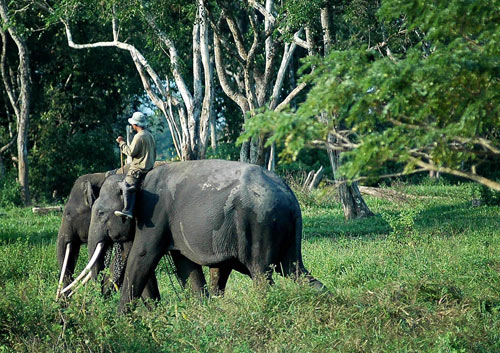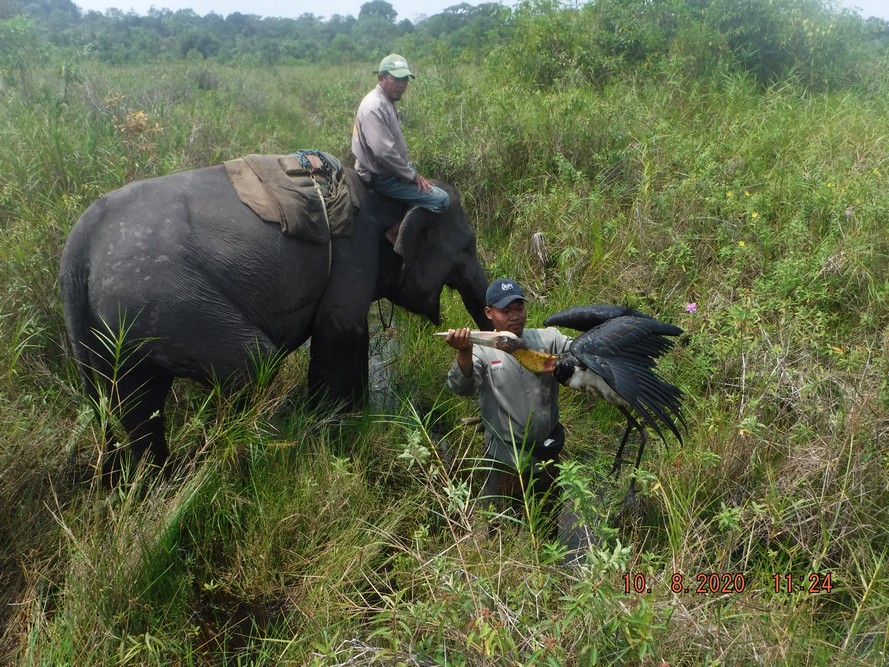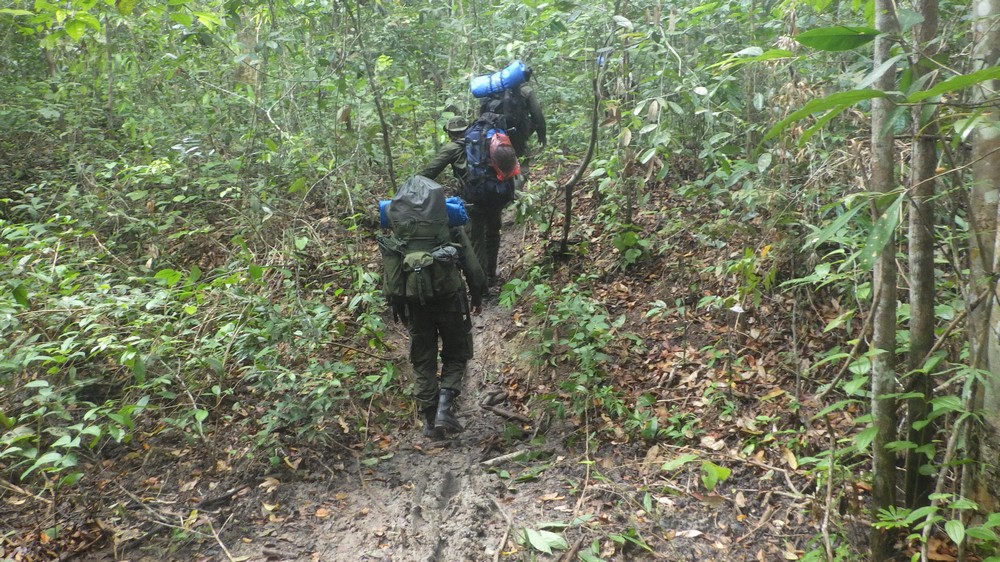Our Work Menu
Way Kambas National Park in Lampung

KHS/CSNC currently works in and around the Way Kambas National Park (WKNP) located on the south-eastern coast of the province of Lampung in Sumatra. The WKNP was declared a National Park in April 1989, it comprises 125.631.00 hectares, and is divided in three sections, each of which is divided in four resorts. Before the declaration as a National Park, the area had different and changing statuses of protected area since 1936. During the 1960s and 1970s, large parts of the NP were degraded by intensive logging and encroachment.
The National Park, located on the east coast of the province of Lampung lays at a level of 0 – 50 meters above sea level, and consists of mangrove forest, swamp forest, primary lowland rainforest, degraded and secondary lowland forest, as well as bush and grassland in formerly degraded areas. The National Park is home to about 180 wild Sumatran elephants, which is more than 10% of the remaining wild Sumatran population of less than 1.500 animals, and one of the largest (if not the largest) remaining connected population of this species. In addition to its importance for Sumatran elephants, WKNP has one of the very last small populations of Sumatran rhinoceros and several other critically endangered wildlife species such Sumatran tiger, Malayan tapir, Tomistoma crocodiles, White-winged duck.
Being home to many critically endangered species, the WKNP is an important biodiversity conservation area. However, many illegal activities occur inside the WKNP such as logging, poaching, land cultivation, and cattle grazing, especially on the boundaries of the National Park. These illegal activities threaten the biodiversity in the National Park and contribute to increasing Human-Elephant Conflict (HEC).

HEC frequently occurs in areas where the National Park borders farmland. Such conflict can cause loss of crops, damage to houses and other properties, can lead to significant loss of income thus negatively impacting local communities’ economy and therefore lead to anger against wild elephants, which is detrimental to the conservation efforts and protection of these critically endangered elephants.
Since 2016 KHS/CSNC works in and around the Way Kambas National Park (WKNP), all work is implemented in collaboration with the WKNP agency. For the collaboration with the WKNP, KHS has signed a Memorandum of Understanding (MoU). The first MoU (2016 – 2019) was renewed in 2020 for the period 2020 – 2024.







